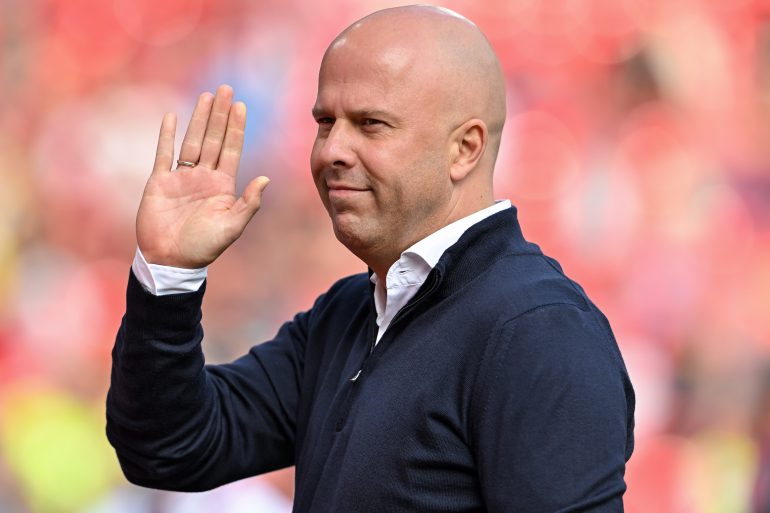It was in Lady Windermere’s Fan that one of Oscar Wilde’s most quoted aphorisms was coined: ‘There are only two tragedies in life: one is not getting what one wants, and the other is getting it.’ Isn’t this the universal human experience? You spend years, even decades, wading through the endless, viscous sludge of failure and heartbreak. Or floating in the fatal waters of hope and belief. And with each setback that Holy Grail you so desire appears ever more distant on the horizon. Yet when it arrives, the unadulterated joy you expected to make your body vibrate isn’t quite there.
This is how Liverpool must have felt as they celebrated their 19th league title in 2021 in an empty, silent stadium. Due to Covid, no fans were able to attend the final nine games of the season, including when they received the hallowed Premier League title. They had been waiting thirty long years for this moment. After being the preeminent English side of the 1970s and 80s, winning eleven league titles and four European Cups in eighteen years, they had to wait three decades to reach the summit of English football again. After thirty years of longing, the expression of jubilant relief should have been cosmological in scale. Yet there they were, lifting their Holy Grail to 40,000 songless seats.
Not this time. When Liverpool captain and Dutchman Virgil van Dijk lifts the Premier League on 25 May after their final match against Crystal Palace, it will be in front of a full and delirious Anfield crowd. It will be a historical moment in English domestic football history. Famously, in 1994, after Manchester United had achieved their own Holy Grail of winning the Premier League for the first time in 26 years, Liverpool fans unfurled a beautifully hubristic banner that read ‘Man United…come back when you’ve won 18’. Inevitably, when Man United equalled that record in 2009, United fans raised their own banner: ‘You told us to come back when we’ve won 18… We are back.’
Manchester United would win two more titles under Alex Ferguson before his retirement in 2013, taking their total to twenty, making them undisputedly the most successful team in English football. When Virgil is presented with the trophy on 25 May, Liverpool will have equalled that 20 league titles record.
Liverpool’s recording-equalling season has many compelling narratives but at the centre it is the story of one Dutchman, Arne Slot, and his remarkable debut season in England. He is the first Dutch manager to win the Premier League and only fifth manager since 1992 to win it in their debut season. His team have been relentless in their title bid and have held on to first place since November. Slot has shifted the team away from the frenetic style of Jurgen Klopp into something more considered. Slot has created a team that is determinedly structured but flexible in approach; no longer obsessed with brutal high-press, Slot has embraced solidity and patience. While clearly influenced by Klopp and Pep Guardiola, he is no ideologue. He is happy to mix build-up play with one-ball counter attack, doesn’t focus only possession, and the team is still carefully constructed. In some ways he is Dutch pragmatism writ large, the footballing equivalent of the canal system – sturdy, practical but with flourishes of beauty tucked in between.
Slot was certainly left some incredible foundations by Klopp, but he has moulded this team into something that is entirely his own. His achievement is all the more remarkable when you consider he is the first Dutch manager to win one of Europe’s top five leagues since Louis van Gaal won the Bundesliga with Bayern Munich in 2009. Liverpool’s 20th league title has firmly reestablished them as the most successful side in English football. Slot has, in Alex Ferguson’s memorable words, knocked United off their perch.
Written by James Turrell
